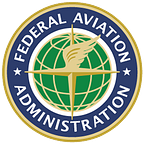Opportunities to take to the skies are more abundant today than ever before in human history. You don’t even need to leave the ground to fly anymore. With nearly one million drones registered, opportunities to either professionally pilot, or work on unmanned aircraft systems (UAS) or drones, are ripe for the taking.
If you are interested in expanding your remote flying skills, or want to encourage a future aviator into a career working with drones, then read on.
It All Starts With TRUST
Do you know what it takes to fly a drone? Find out by taking The Recreational UAS Safety Test (TRUST). It’s free, and you can’t fail it. TRUST is also required if you want to fly a drone for fun.
If you want to go beyond recreational flying and become a pro, then you will need a Remote Pilot certificate to fly a drone under 55 pounds. This is commonly called a “Part 107 Certificate” because the rules are outlined under 14 CFR part 107. These rules cover any small drone flying for any non-recreational purpose. The sky’s the limit as long as you are following the rules.
Use Your Skills Where You Work
Many companies and organizations are using drones as tools to get a job done more efficiently and safely. Firefighters can get a bird’s eye view to understand where to send resources during an emergency. Police can keep an eye from above to keep the public safe. Utilities can inspect wind turbines, pipelines, and power lines. Farmers can inspect crops and spray for pests. Rescuers can use sensors to save lives. Real estate agents can show buyers more angles to sell a property. Insurance adjusters can better examine property damage from a distance and in less time. Cinematographers can capture unique shots. And retailers can deliver products more precisely.
There are many more uses, but you get the picture. There may even be a use for a drone operation where you work.
Go Drone or Go Home
For those trying to figure out what to study in college, there are now direct vectors right into the world of drones. Many universities are now offering bachelor’s and master’s degrees in drone operations. Additionally, STEM educator careers from K-12 and higher are in demand.
You don’t need a drone degree, though, to work for a drone company or teach students. The drone industry is bursting with opportunity. New companies specializing in drone operations, development, manufacturing, and design are spreading across the country.
There is more to the drone industry than just flying. The Association for Unmanned Vehicle Systems International (AUVSI) is one place to look for these types of jobs. Positions range from engineering (software, mechanical, electrical, Java, etc.) to project management, business development, geographic information systems (GIS), research, aviation safety, and sales. Go to auvsi.org or your favorite job search website to take a look at opportunities available today.
The Prop Tip
The drone industry grows every day. One last tip in order to stand out in the crowd — record your hours/experience. Even if you are just starting out with some recreational flying, keep a log. Record the time you spend at the controls, the type of flying you are doing, and any training you take. Just like traditional aviation, your logbook (paper or electronic) is your best resume. Your drone log could just be the key to convincing your company to let you fly a drone for them or get that job in the drone industry. In addition to documenting your experience, a log can show that you are serious about a drone career.
Paul Cianciolo is an associate editor and the social media lead for FAA Safety Briefing. He is a U.S. Air Force veteran, and an auxiliary airman with Civil Air Patrol.